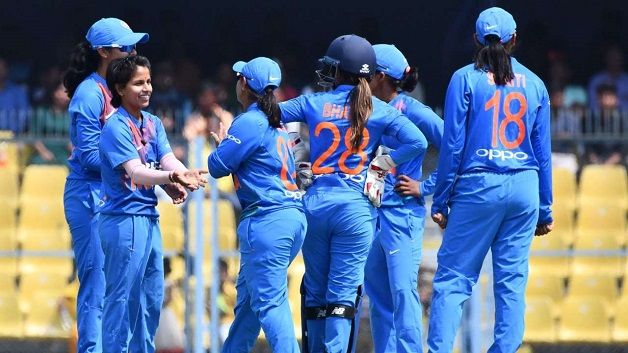
Cricket Country Staff
Editorial team of CricketCountry.
Written by Cricket Country Staff
Published: Sep 16, 2019, 08:09 PM (IST)
Edited: Sep 16, 2019, 08:09 PM (IST)


The BCCI’s Anti-Corruption Unit on Monday has filed a First Information Report (FIR) at the Ashok Nagar Police Station in Bengaluru against Rakesh Bafna and Jitendra Kothari for an alleged attempt to fix an India-England women’s international match this year.
According to a report in Sportstar, Bafna had approached one of the prominent members of the India’s women’s team (name held for security reasons) and offered her huge amount of money if she joined hands with them.
The cricketer was approached in February ahead of India women’s team’s limited-overs series against England – which was part of International Cricket Council (ICC)’s World Championships.
“Today, we have got an FIR registered against two people in Bengaluru. The FIR pertains to an approach that was made to one of the women cricketers of the team. She reported the approach to us and even recorded the conversation she had with one of the accused over the telephone,” BCCI ACU chief, Ajit Singh Shekhawat was quoted as saying in the report.
It was Kothari, who approached the cricketer as a sports manager, via Instagram and offered her managerial services. He then sent her a copy of a contract, but she was unable to sign it since she was touring with the Indian team. Later, she decided not to go ahead with the deal.
Kothari then decided to contact the cricketer, who was at the National Cricket Academy (NCA) in Bengaluru, again in February this year and he got her in touch with Bafna suggesting to her that he had a business offer for her.
“Kothari was trying to sell himself as the manager of various women cricketers. It was he who introduced Bafna to the player. He approached her to fix matches and play according to the script,” Shekhawat said.
According to the report, Bafna offered the player Rs 1 lakh per match – during the India-England series.
“Initially the call was made via WhatsApp and Bafna said that endorsement would be for a noted Indian clothing brand. But soon, he directly approached her to fix matches. The player told him that there is a bad connection and she could call her on her regular number,” Shekhawat said.
ALSO READ: When Sachin Tendulkar’s Ranji Trophy swansong inspired Shafali Verma to play for India
Sensing that the deal was a little fishy, she recorded the conversation and immediately reported the matter to the BCCI ACU. “Bafna took advantage of Kothari’s inaptitude, and the player had rightly made a report of the approachment. Bafna was warned for his action and was reported to the BCCI and ICC.”
The BCCI ACU understood that the approach was malicious with the sole intention to fix matches and decided to go ahead with the FIR.
“People involved in betting just need any cricket match, for them, it does not matter at what level it is being played. If a match is telecast, that helps them in betting and that’s why they indulge in spot-fixing,” he said.
The BCCI ACU has registered the FIR under case number: 312/19 at the Ashok Nagar police station, Bengaluru City.
The case has been registered under the following sections:
IPC Section 420: Indian Penal Code deals with Cheating and dishonestly inducing delivery of property. The maximum punishment which can be awarded is imprisonment for a term of 7 years and fine.
IPC Section 511: Punishment for attempting to commit offences punishable with imprisonment for life or other imprisonment.
IPC Section 120B: Whoever is a party to a criminal conspiracy to commit an offence punishable with death, or rigorous imprisonment for a term of two years or upwards, shall, where no express provision is made in this Code for the punishment of such a conspiracy, be punished in the same manner as if he had abetted such offence.
IPC Section 109: Punishment of abetment if the act abetted is committed in consequence and where no express provision is made for its punishment. Whoever abets any offence shall, if the act abetted is committed in consequence of the abetment, and no express provision is made by this Code for the punishment of such abetment, be punished with the punishment provided for the offence. Explanation. An act or offence is said to be committed in consequence of the abetment, when it is committed in consequence of the instigation, or in pursuance of the conspiracy, or with the aid which constitutes the abetment. Illustrations
Karnataka Police Act, 1963, Section 79.
This website uses cookies so that we can provide you with the best user experience possible. Cookie information is stored in your browser and performs functions such as recognising you when you return to our website and helping our team to understand which sections of the website you find most interesting and useful.
Strictly Necessary Cookie should be enabled at all times so that we can save your preferences for cookie settings.
If you disable this cookie, we will not be able to save your preferences. This means that every time you visit this website you will need to enable or disable cookies again.
